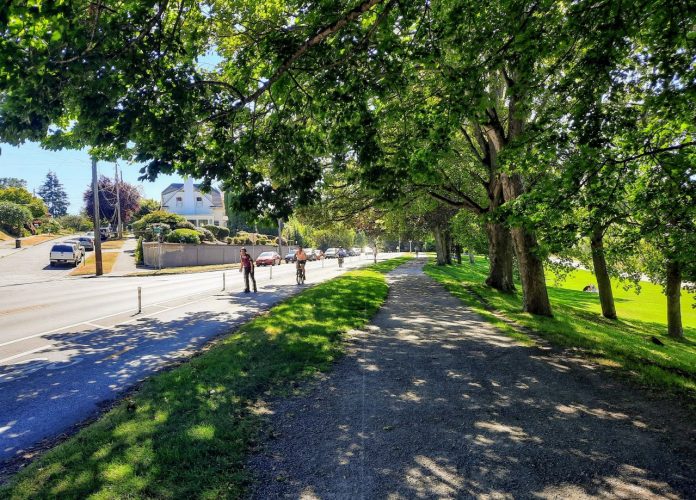
Fellow Seattleites, I have good news: Our city’s trees are not doomed.
Despite what you may have heard, Seattle’s recently passed tree ordinance will not end Emerald City’s reputation for being green.
There’s no denying that Seattle’s tree canopy is shrinking. The Seattle Office of Sustainability and Environment found that our city has lost 255 acres of tree canopy since 2016 — about the size of Green Lake. Overall, canopy cover is down to 28.1%, notably short of the 30% goal Seattle aims to hit by 2037.
To combat this decline, the Seattle City Council passed an update to its tree protection legislation last May. The 2023 Tree Protection Ordinance more than tripled the number of trees in Seattle’s regulatory purview. It allows two small tree removals from private property every three years, an improvement over the old law which permitted three cuts per year. To remove trees with a trunk wider than 12 inches, developers must plant a replacement or face fines ranging up to tens of thousands of dollars.
These legislative changes only benefit Seattle’s trees, but some media coverage has framed the ordinance as detrimental, if not an outright “chainsaw” in the words of the Seattle Times editorial board.
Some reports on the bill have portrayed the municipal code update as an impediment to tree regeneration and an affront to climate activism. Readers are led to believe that the ordinance was snuck through the Council by nefarious businessmen intent on orchestrating a city-wide clearcut. Some have even gone as far as to call it the greatest threat to Seattle’s urban canopy in decades.
Such conspiratorial framing is inaccurate. No part of the bill reduces tree protections in any way. Contrary to some local reports, there is no provision that makes it easier to cut trees during the planning stage of a development. Others, including Councilmember Alex Pedersen, state that developers are now allowed to build on up to 85% of a lot; this is incorrect as it fails to consider other City ordinances containing open area and walkway requirements that significantly lower that percentage. The bill only strengthens City tree protections and regulations.

This is not to say that the ordinance is ideal. Environmentalists can be frustrated that its changes do not include a unilateral restriction on tree cutting. However, we should also recognize that the bill is a compromise, the result of long negotiations between affordable housing advocates, developers, and arborists, all of whom deserve a say in the matter.
Perfect cannot be the enemy of the good. Under the new regulations, tree cutting by developers is now limited by significant fiscal constraints, which is an objectively positive change for Seattle’s trees. Smearing such improvements only serves to generate dissatisfaction with our government and make future legislation more difficult to enact.
It is important to recognize how good we have things comparatively. Seattle is still incredibly green relative to other big cities: Our measly 28% canopy cover still puts us in the top ten American urban canopies according to American Forests. Furthermore, we have a mayor committed to tree protection, who co-created this ordinance and signed an executive order last March that requires every healthy tree removed from City property to be replaced with at least three new ones.
So, while environmentalists should be prepared to continue working on protecting Seattle’s urban forest, we need to celebrate our wins when we get them. The fact is that fewer of Seattle’s trees will be cut down because of this bill. Let’s take its passage for what it is – a small but meaningful victory – and look forward to making further progress towards keeping Seattle deserving of its emerald moniker.

Jack Noble (Guest Contributor)
Jack Noble is a student at Wesleyan University majoring in Government, Economics, and History. Born and raised in Seattle, he is active in local politics and has an avid interest in urban policy. In 2023, he was a summer communications intern in Mayor Bruce Harrell's Office. He is an editor and writer for Wesleyan's Business Review and the Arcadia Political Review.
